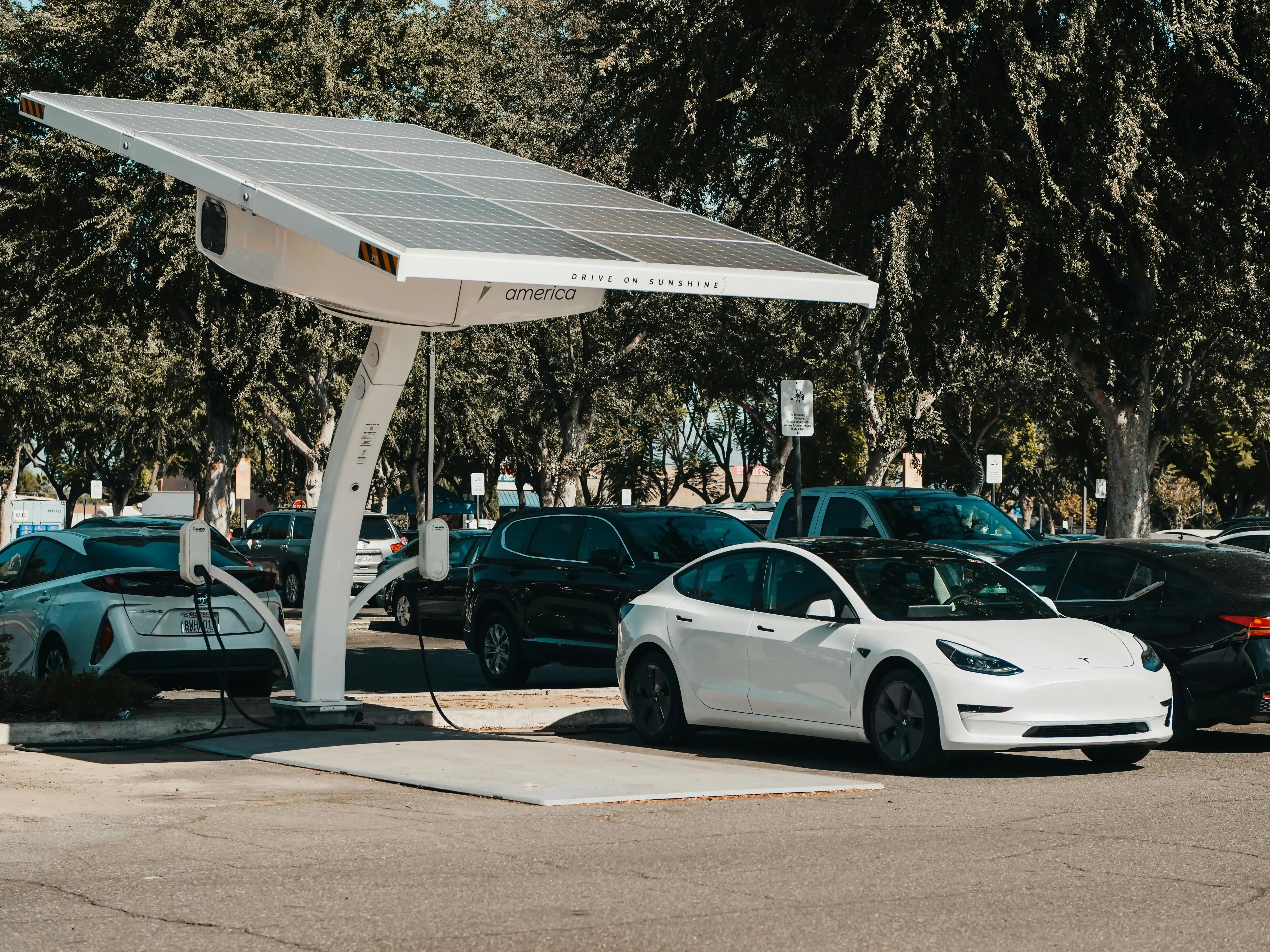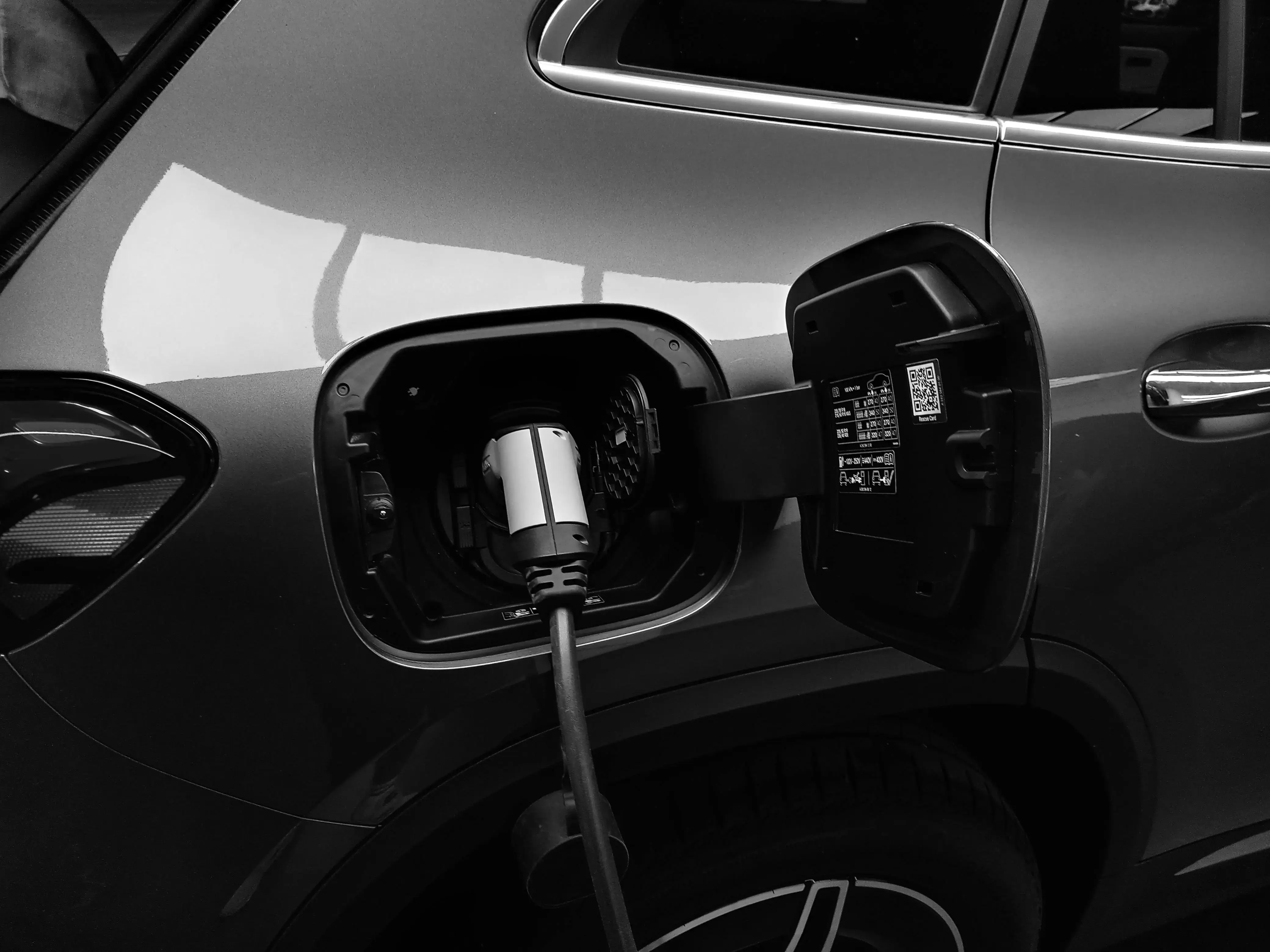Step-By-Step EV Import Process Norway: Timing & Adapter Guide
Importing an electric vehicle from the United States to Norway involves navigating a comprehensive process with multiple phases, regulatory requirements, and technical inspections. Understanding each step ensures successful completion while maximizing Norway's generous EV import incentives and avoiding costly delays or complications.
Overview: The Complete EV Import Journey
The Norwegian EV import process consists of five distinct phases spanning approximately 10-16 weeks from initial planning to final registration. Each phase has specific requirements, documentation needs, and potential challenges that require careful attention and professional coordination.
Complete Process Timeline:
-
Phase 1: Pre-Import Planning (2-4 weeks)
-
Phase 2: Shipping Logistics (3-5 weeks)
-
Phase 3: Norwegian Customs Clearance (1-3 weeks, extended during peak seasons)
-
Phase 4: Technical Inspection & Approval (2-4 weeks, longer in summer/holidays)
-
Phase 5: Registration & Road Approval (1-2 weeks)
Total Timeline: 9-18 weeks depending on complexity and seasonal factors
Phase 1: Pre-Import Planning and Preparation (2-4 weeks)
Initial Vehicle Assessment and Eligibility Verification
EV Model Research and Compliance Check:
Before proceeding with any import planning, verify your electric vehicle's eligibility for Norwegian import and road approval.
Critical Eligibility Factors:
-
Pure electric propulsion: Must be 100% battery electric (no plug-in hybrids for full tax benefits)
-
Norwegian compatibility: Charging standards and technical specifications suitable for Norwegian infrastructure
-
Safety compliance potential: Ability to meet Norwegian/EU safety and technical requirements
-
Documentation availability: Access to manufacturer specifications and safety certifications
Service Network Availability (Critical Consideration):
Tesla provides comprehensive coverage in Norway with full service network support, while many other U.S. EV brands have limited or no authorized repair network in Norway. Models like the Chevrolet Bolt EUV may have no authorized service centers, requiring independent mechanics or specialized EV service providers.
Vehicle Selection Considerations:
-
Tesla Models: Full manufacturer support with service centers and parts availability
-
Ford F-150 Lightning: Limited but growing service network through Ford dealers
-
BMW/Mercedes EVs: European service network available through local dealers
-
GM Products (Bolt EUV): No authorized service network - requires independent service
-
Other U.S. Brands: Verify specific service availability before importing
Comprehensive Documentation Gathering
Primary Vehicle Documentation:
-
Original vehicle title with clear ownership and no outstanding liens
-
Bill of sale showing actual purchase price and transaction date
-
Vehicle registration certificate from current state of registration
-
Manufacturer specifications including battery capacity, charging capabilities, and technical data
-
VIN verification and vehicle identification confirmation
EV-Specific Technical Documentation:
-
Battery safety certification including UN 38.3 compliance for lithium-ion systems
-
Charging system specifications compatible with Norwegian/European standards
-
Software and firmware details for vehicle control and safety systems
-
Electromagnetic compatibility certification for European radio frequency standards
-
High-voltage safety documentation including isolation and protection systems
Import Authorization Clarifications:
Import authorization is generally not required for private vehicle imports. However, authorization may be necessary if:
-
Importing multiple vehicles (approaching commercial activity)
-
Prototype or unapproved vehicles not meeting standard certification requirements
-
Modified vehicles with non-standard configurations or components
-
Commercial import operations exceeding personal use thresholds
Charging Adapter Pre-Arrangement (Critical Requirement)
Pre-Arrival Adapter Planning:
Norwegian charging infrastructure requires specific connectors that must be arranged before vehicle arrival to ensure immediate charging capability upon registration.
Charging Adapter Requirements:
-
Tesla NACS vehicles: Must pre-arrange NACS to CCS2 adapter before shipping or arrival
-
Other US charging standards: Verify adapter availability and order before import
-
Adapter sourcing: Limited availability in Norway requires advance planning
-
Installation verification: Ensure adapter compatibility with specific vehicle model
Norwegian Charging Standards:
-
CCS2 (Combined Charging System 2): Standard for all Norwegian DC fast charging
-
Type 2 AC: Standard for Norwegian AC charging and home installations
-
Tesla Supercharger: Available with proper CCS2 adapter
-
CHAdeMO: Limited availability and declining support in Norway
Phase 2: Shipping Logistics and International Transport (3-5 weeks)
US Export Processing and Vehicle Preparation
Vehicle Collection and Pre-Shipping Inspection:
Professional vehicle collection ensures proper documentation and condition assessment before international transport.
Collection Process Steps:
-
Comprehensive inspection documenting vehicle condition with detailed photography
-
Battery charge optimization typically maintaining 20-50% charge for transport safety
-
Personal item removal clearing all belongings per international shipping regulations
-
Fluid level verification ensuring proper levels for extended transport period
-
Security preparation disabling alarms and securing loose components
US Customs Export Procedures:
-
Export declaration filing with US Customs and Border Protection
-
AES (Automated Export System) electronic submission of export information
-
Commercial documentation accurate invoicing and shipment manifests
-
Export compliance ensuring vehicle meets US export control requirements
Container Loading and Ocean Transport
EV-Specific Loading Procedures:
Electric vehicles require specialized loading and securing procedures to protect battery systems and electrical components during ocean transport.
Container Loading Protocols:
-
Battery safety measures including proper grounding and fire suppression protocols
-
Climate monitoring temperature and humidity control systems for battery protection
-
Securing systems specialized blocking and bracing preventing movement damage
-
Documentation protection safeguarding technical specifications and warranty information
Ocean Transit Management:
-
Real-time tracking continuous monitoring of container location and conditions
-
Route optimization direct routing to Norwegian ports minimizing handling
-
Communication updates regular status reports throughout transit period
-
Arrival coordination scheduling with Norwegian port facilities and customs
Current Shipping Routes and Costs:
-
New York to Oslo: $2,850 with 21-day transit (most economical option)
-
Florida to Oslo: $3,850 with 23-day transit (moderate pricing)
-
California to Oslo: $5,200 with 29-day transit (longest route)
Phase 3: Norwegian Customs Clearance and Tax Assessment (1-3+ weeks)
Import Declaration and Value Assessment
Customs Documentation Submission:
Norwegian customs requires comprehensive documentation for accurate tax assessment and regulatory compliance.
Required Customs Documentation:
-
Commercial invoice with accurate vehicle valuation including purchase price and modifications
-
Bill of lading proving legal shipment and container details
-
Import declaration detailed vehicle specifications and intended use
-
Technical specifications battery system and electrical component information
-
Ownership documentation proving legal right to import vehicle
Tax Calculation and Payment Process:
VAT Assessment (Critical Information):
-
Up to NOK 500,000: Complete VAT exemption (0% tax)
-
Above NOK 500,000: 25% VAT on amount exceeding threshold
-
Total valuation includes: Purchase price + shipping costs + applicable duties
ISV (Registration Tax) for EVs:
-
Pure electric vehicles: Minimal ISV based primarily on vehicle weight
-
Zero emissions benefit: Elimination of emission-based tax components
-
Weight considerations: Some ISV may apply for heavier EVs with large battery systems
Seasonal Processing Delays (Important Timing Consideration)
Peak Season Processing Extensions:
Processing times can be significantly extended during peak seasons when customs and inspection facilities experience higher volumes and reduced staffing.
Peak Season Periods:
-
Summer months (June-August): Extended processing due to vacation schedules and increased import volumes
-
Holiday periods (December-January): Significant delays during Christmas and New Year closures
-
Spring shipping season (March-May): Higher volumes as importers prepare for summer registration
-
Pre-registration rushes: Extended times when many vehicles await inspection simultaneously
Peak Season Planning:
-
Timeline buffers: Add 2-4 additional weeks during peak periods
-
Advance scheduling: Book inspection appointments well in advance during busy seasons
-
Alternative timing: Consider off-season imports for faster processing
-
Professional coordination: Utilize experienced importers familiar with seasonal patterns
Customs Processing Timeline Considerations:
-
Standard processing: 1-3 weeks during normal periods
-
Peak season processing: 3-6 weeks during holidays and summer
-
First-time importers: Additional time regardless of season
-
Documentation issues: Exponential delays during peak periods
Phase 4: Technical Inspection and Approval (2-4+ weeks)
Norwegian Public Roads Administration Inspection
Mandatory Technical Inspection Requirements:
All imported EVs must undergo comprehensive technical inspection regardless of existing certifications or country of origin approvals.
Seasonal Inspection Scheduling:
Summer months and holiday periods create significant backlogs at inspection facilities, requiring advance planning and extended timelines.
Technical Inspection Components:
-
Battery system safety including thermal management, fire protection, and emergency procedures
-
High-voltage electrical systems testing insulation resistance and ground fault protection
-
Charging system compatibility ensuring connection with Norwegian charging infrastructure
-
Vehicle dynamics and handling confirming safe operation on Norwegian roads
-
Lighting and visibility systems modifications for Norwegian driving conditions and regulations
EV-Specific Safety Verification:
-
Insulation resistance testing of high-voltage components and systems
-
Ground fault detection system functionality and emergency disconnect accessibility
-
Thermal management systems battery cooling and heating system inspection
-
Battery management system verification monitoring cell balance and safety parameters
-
Emergency response procedures accessibility for Norwegian first responders
Charging Compatibility Requirements (Critical Specifications)
Norwegian Charging Infrastructure Standards:
All public fast chargers in Norway use CCS2 (Combined Charging System 2) or Type 2 connectors. Vehicles equipped with other charging standards require specific adaptations that must be pre-arranged.
Pre-Arranged Adapter Requirements:
-
Tesla NACS vehicles: NACS to CCS2 adapters must be secured before arrival - limited Norwegian availability
-
Adapter sourcing: Order adapters from specialized suppliers or Tesla service centers before shipping
-
Compatibility verification: Ensure adapters work properly with your specific vehicle model
-
Installation timing: Plan adapter installation during technical inspection phase
Charging Standard Compatibility:
-
CCS2 Standard: Direct compatibility with Norwegian fast charging network
-
Type 2 AC Charging: Compatible with Norwegian AC charging infrastructure
-
Tesla NACS: Requires pre-arranged CCS2 adapter for Norwegian charging network
-
CHAdeMO: Limited availability in Norway, declining support
Charging System Modifications:
-
Adapter integration ensuring proper electrical and software compatibility
-
Software updates enabling CCS2 compatibility where manufacturer-supported
-
Charging port modifications in rare cases for proper connector fit
-
Charging speed optimization ensuring maximum charging rates with Norwegian infrastructure
Common Modification Requirements
Technical Modifications for Norwegian Compliance:
Many imported EVs require specific modifications to meet Norwegian road safety and technical standards.
Typical Required Modifications:
-
Headlight adjustment for right-hand traffic and European beam patterns
-
Speedometer conversion to metric units if originally displaying imperial measurements
-
Charging port compatibility ensuring proper connection with CCS2 or Type 2 standards
-
Warning labels in Norwegian language for high-voltage systems and safety procedures
-
Emergency information accessible documentation for Norwegian emergency services
Modification Process Management:
-
Authorized service centers approved facilities for technical modifications
-
Seasonal scheduling booking modification appointments well in advance during peak periods
-
Re-inspection scheduling verification of completed modifications
-
Compliance certification official approval for Norwegian road use
Phase 5: Registration and Final Road Approval (1-2 weeks)
Norwegian Vehicle Registration Process
Registration Documentation Requirements:
Final vehicle registration requires comprehensive documentation proving compliance, ownership, and tax payment.
Required Registration Documents:
-
Technical inspection certificate proving Norwegian compliance approval
-
Customs clearance documentation with tax payment verification
-
Original foreign registration from country of origin
-
Proof of ownership vehicle title and purchase documentation
-
Norwegian residence proof establishing legal registration eligibility
-
Mandatory traffic coverage Norwegian-compliant vehicle protection
Registration Process Steps:
-
Document compilation gathering all required paperwork
-
Registration application submission to Norwegian Public Roads Administration
-
Fee payment registration costs and administrative charges
-
License plate assignment receiving Norwegian registration plates
-
Vehicle card issuance official Norwegian vehicle documentation
EV-Specific Registration Benefits
Electric Vehicle Registration Advantages:
EVs benefit from expedited processing and reduced fees compared to conventional vehicles.
EV Registration Benefits:
-
Priority processing faster handling for electric vehicles
-
Reduced registration fees lower costs compared to conventional vehicles
-
Special license plates optional EV identification plates available
-
Charging network access automatic enrollment in public charging systems
-
Incentive program benefits immediate access to toll exemptions and parking privileges
Critical Post-Import Considerations
Warranty Coverage (Important Limitations and Variations)
U.S. Warranty Coverage in Norway:
Most U.S. automakers do not honor vehicle warranties in Norway unless explicitly specified in the original warranty terms, with important exceptions for certain programs.
Warranty Status by Manufacturer:
-
Tesla: Global warranty coverage honored in Norway with full service support
-
Ford: Coverage varies significantly - check if vehicle qualifies under specific export or military sales programs that may extend international warranty coverage
-
GM (Chevrolet): Typically no warranty coverage in Norway
-
BMW/Mercedes: European warranty may apply through local dealers
-
Other Brands: Verify specific warranty terms and Norwegian coverage before importing
Ford Warranty Considerations (Specific Clarification):
Ford warranty coverage abroad varies depending on specific programs:
-
Ford Export Programs: Some vehicles sold through export programs may include international warranty
-
Military Sales Programs: Military purchasers may have extended international warranty coverage
-
Standard Retail Sales: Typically no international warranty coverage
-
Dealer Verification: Confirm warranty status with selling dealer before purchase
Warranty Implications:
-
Service costs: All repairs may be at owner's expense without warranty coverage
-
Parts availability: Limited parts access for brands without Norwegian presence
-
Extended warranty options: Consider third-party coverage for non-Tesla/non-export program vehicles
-
Service documentation: Maintain detailed service records for resale value
Service Network Availability Assessment
Manufacturer Service Support Levels:
-
Tesla: Comprehensive service network with multiple locations and mobile service
-
European Brands (BMW, Mercedes, Audi): Full dealership network and authorized service
-
Ford: Limited but growing service network through select dealers
-
GM/Chevrolet: No authorized service network - independent mechanics only
-
Other U.S. Brands: Verify service availability before importing
Independent Service Options:
-
Specialized EV mechanics growing network of independent EV service providers
-
Mobile service options traveling technicians for basic maintenance and repairs
-
Parts sourcing international shipping for replacement components
-
Service cost implications potentially higher costs without manufacturer network
Risk Management and Common Challenges
Seasonal and Timing-Related Risks
Peak Season Complications:
-
Extended processing times during summer and holiday periods
-
Increased costs due to demand and limited availability
-
Service appointment delays longer waits for inspection and modification services
-
Shipping congestion potential delays in ocean transport and port handling
Seasonal Risk Mitigation:
-
Off-season planning considering autumn/winter imports for faster processing
-
Early booking securing inspection and service appointments well in advance
-
Flexible timeline planning building substantial buffers for peak season delays
-
Professional coordination utilizing experienced importers familiar with seasonal patterns
Import-Specific Risks for U.S. EVs
Charging Adapter Availability:
-
Pre-arrangement necessity adapters must be secured before arrival
-
Limited Norwegian availability especially for Tesla NACS adapters
-
Compatibility issues ensuring adapters work properly with specific vehicle models
-
Cost implications adapter costs and potential charging speed limitations
Service and Maintenance Risks:
-
Limited service options for non-Tesla vehicles requiring specialized knowledge
-
Parts availability challenges extended wait times for U.S.-specific components
-
Higher service costs without warranty coverage and manufacturer support
-
Technical expertise gaps limited familiarity with U.S. EV systems among Norwegian mechanics
Getting Professional Support for Your EV Import
Comprehensive Import Services
For complete information about importing electric vehicles to Norway, including detailed process steps, seasonal timing considerations, charging adapter requirements, and warranty coverage analysis, explore our comprehensive resource: How to Import an Electric Vehicle to Norway from the U.S. in 2025.
Expert Norwegian EV Import Support
West Coast Shipping's specialized Norwegian import services provide comprehensive support throughout the entire EV import process, including critical assessments of seasonal timing, charging compatibility, and warranty coverage:
Complete Process Management:
-
Seasonal timing optimization planning imports to avoid peak season delays
-
Charging adapter coordination ensuring proper adapters are arranged before arrival
-
Warranty assessment analyzing coverage options and alternatives
-
Documentation preparation ensuring complete and accurate paperwork
-
Technical inspection support guidance through compliance and approval process
-
Registration assistance completing final steps for Norwegian road approval
EV-Specific Expertise:
-
Peak season planning optimizing import timing for fastest processing
-
Charging standard compatibility expertise with CCS2, Type 2, and adapter requirements
-
Service network mapping identifying available service options for your specific vehicle
-
Warranty alternative planning exploring third-party coverage options and Ford program eligibility
-
Technical compliance ensuring vehicles meet Norwegian safety and charging standards
-
Post-import support ongoing assistance with service and maintenance challenges
Ready to Start Your Norwegian EV Import with Complete Preparation?
Successfully importing an electric vehicle to Norway requires comprehensive understanding of not just the import process, but also the critical timing considerations, charging adapter requirements, and warranty coverage variations that can significantly impact your ownership experience.
Understanding seasonal processing delays, the necessity of pre-arranging charging adapters, and the nuances of warranty coverage (especially Ford's export and military program variations) ensures successful long-term ownership and helps avoid costly delays or compatibility issues after import completion.
Whether you're importing during peak season or off-season, with Tesla's full warranty support or navigating Ford's variable coverage programs, professional guidance ensures optimal timing and preparation for your specific circumstances.
Ready to begin your Norwegian EV import process with complete preparation for all timing and compatibility requirements? Contact our specialists through our Norwegian services page for personalized consultation that includes seasonal timing optimization, charging adapter coordination, and comprehensive warranty coverage analysis for your specific electric vehicle import requirements.
You May Also Like
These Related Stories

Norway EV VAT & ISV Tax Guide: Import Costs & Exemptions 2025

Norwegian EV Import Requirements & Documentation: Complete Guide

-093789-edited.png?width=220&height=79&name=wcs_final_logo_(1)-093789-edited.png)
